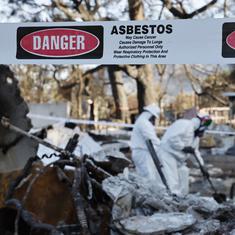Illegal constructions can’t be legitimised because of administrative delays, says SC
The bench said that unauthorised structures should only be regularised in exceptional cases after carrying out a detailed survey.

Illegal constructions cannot be legitimised merely because there was a delay in taking action against them or because a large amount of money was spent in building the structures, the Supreme Court said on Tuesday.
The court passed a slew of guidelines while upholding the demolition of unauthorised commercial structures on a residential plot in Uttar Pradesh's Meerut.
A bench comprising Justices JB Pardiwala and R Mahadevan said that urban planning laws must be followed strictly, and action must be taken against officials who allow unauthorised constructions.
It said that illegal structures should only be regularised in exceptional circumstances as a one-time measure "after a detailed survey and considering the nature of land, fertility, usage, impact on the environment, availability and distribution of resources, proximity to water bodies/rivers and larger public interest".
"We are of the opinion that construction(s) put up in violation of or deviation from the building plan approved by the local authority and the constructions which are audaciously put up without any building planning approval, cannot be encouraged," the court said. "Each and every construction must be made scrupulously following and strictly adhering to the rules."
The bench said that if any violation of the rules is brought to the notice of courts, the illegality “must be curtailed with iron hands”. Any leniency shown to violators “would amount to showing misplaced sympathy”, it remarked.
The two-judge bench said that unauthorised constructions, apart from posing a threat to life, also “have an effect on resources like electricity, ground water and access to roads”.
The court said that authorities must obtain an undertaking from developers that they will hand over possession of buildings only after getting a completion certificate or occupation certificate. Builders must display a copy of the approved plan at the construction site, and municipal authorities must inspect the premises from time to time to check for any violations, it further directed.
Utilities such as electricity and water supply must be provided only after the building gets a completion or occupation certificate, as per the guidelines.
Even if violations are noticed after a building gets a completion certificate, the authorities must take legal action against the builder or occupant, the court said, adding that action should also be taken against the official who wrongfully issued a completion certificate.









